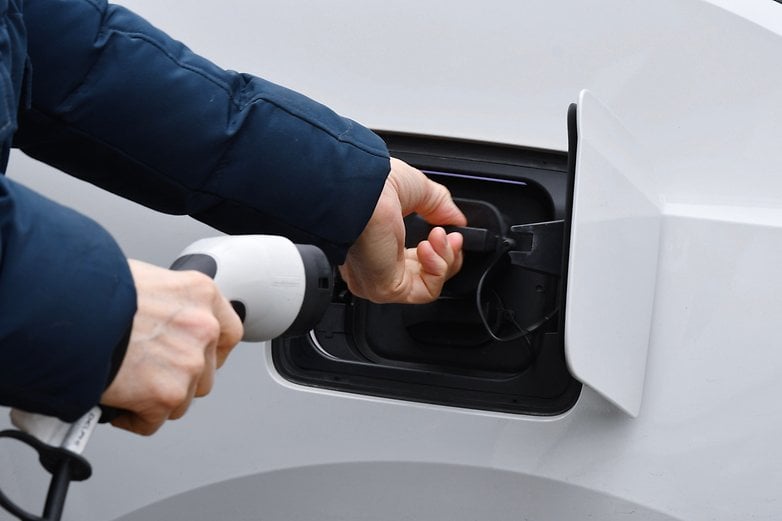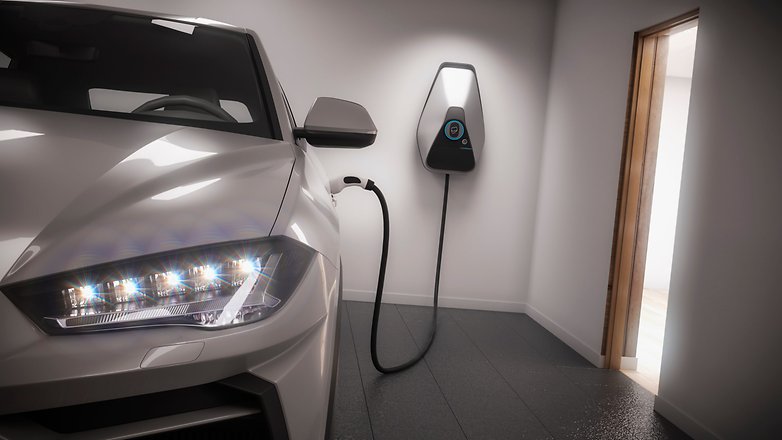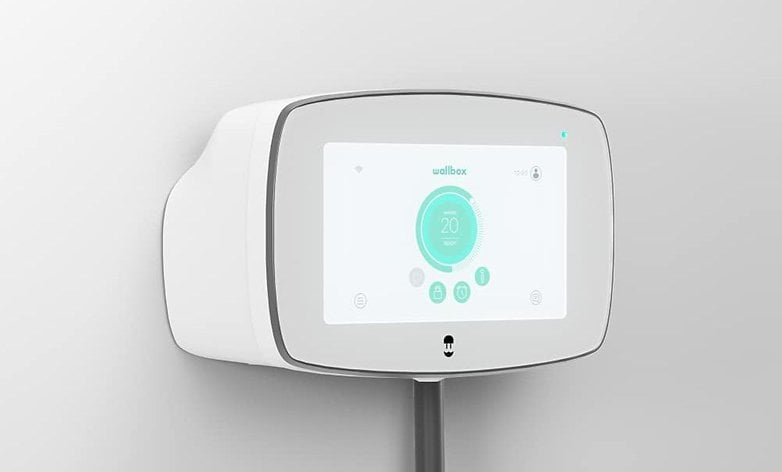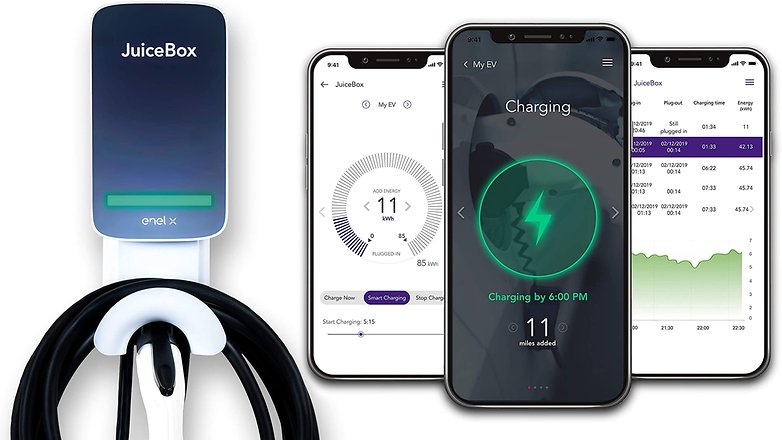
[ad_1]
Before purchasing an electric vehicle, everyone should also think about the available charging infrastructure. In many places, there is still room for improvement, and it’s not particularly smart to rely exclusively on publicly available charging stations in the first place. Therefore, it is advisable to think about installing an EV home charger right smack in the comfort of your own home.
You’ll be able to see an overview of the steps you should take when getting your own private EV charger below. Don’t panic, there are only a handful of points you need to consider, so let’s get right to it!
Jump to:
Why buy a EV home charger in the first place?
This question may sound strange to you, but in fact, many people first think about charging their electric car simply by using a normal power outlet and the portable charger that typically comes with your shiny new electric car. But is that a good idea? Short answer: No! Charging will be dreadfully slow at around 10 miles of range per hour, depending on the efficiency of your electric car, of course.
Those portable chargers that will typically come with your electric car charge at 120 volts and are called Level 1 chargers. It will take somewhere between 10 and 20 hours to fully charge your car. That may be fine if your daily commute consists of short trips to the local Costco. If you regularly drive more than around 30 miles on a single day, you’ll want to get a so-called Level 2 charger.
Level 2 chargers double the voltage to 240 volts and charge up to eight times faster than your average Level 1 charger. In any case, they are fast enough to replenish your battery overnight. The disadvantage: Those chargers come either with the same 240-volt 14-50 plug that you’ll find on dryers and other major home appliances – or they need to be hard wired by an electrician. Unless you have a 14-50 power outlet at the right position, you’ll need to pay a professional electrician in any case.
Everything included, the typical cost ranges between $400 and $4500 for a Level 2 EV home charger including the hardware and installation.
Overall the advantages of having your own Level 2 charger generally outweigh the cost:
- You can charge your car at any time because you alone use the EV home charger.
- You save yourself the hassle of searching for public charging points.
- The charging power between your e-vehicle and your EV home charger is automatically regulated.
- If the EV home charger has a backend, you can bill your employer for the charged electricity of a company car.
Things to consider before purchasing an EV home charger
Legal requirements
In contrast to other technical devices, you must first make sure that you are authorized to install the EV home charger on your premises.
Homeowners have an easier time doing so because they don’t have to go to a landlord for permission. In the comfort of your own house, you simply install the EV home charger anywhere you want. Depending on the power line leading to your house, you’ll be able to install a more capable EV charger in your home. Modern houses are typically wired with 200-amp lines.
However, if you are renting or own an apartment in an apartment building, you must first obtain permission from the landlord or at the owners’ meeting. In principle, however, the “right to charge” applies, even for tenants. Depending on the state you live in, the laws may differ. It’s best to do some quick research by searching for “right to charge [your state]” and get together with the other tenants that live in your apartment building to approach the landlord together.
If your landlord gives you the green light, you’ll have to all decide together on a system that ticks all the boxes. Smart chargers with Dynamic Load Balancing for example will ensure there’s always enough power for all flats in the building. And most advanced smart chargers also feature touchscreens that allow for a precise individual billing of the tenants depending on how much electricity they used.

It is also logical that the spatial requirements must be fulfilled. In other words, you should ideally have a parking space that is somewhat protected from the weather, which will most likely require a garage or carport. Also you should ensure that the cable length is suitable and that you don’t run the risk of creating a tripping hazard with the cable. Speaking of cables: Clarify in advance whether you need a Type 1 or Type 2 charging cable. In the States, Type 1 is the dominant cable.
Purchasing the EV charger
As with any purchase, the price plays a role, of course. In case of the EV home charger, the investment is composed of several items – and several questions arise: Is there a government rebate that you can take advantage of? Will you or the landlord pay? Do you have a photovoltaic system? How much will the installation itself cost? You should bear all these in mind in addition to the purchase price of the hardware.
Cost of the EV charger and its installation
First of all, you’ll want to figure out what the hardware itself costs. This depends on the manufacturer and the range of functions and starts from $500 thereabouts. The more advanced and smart chargers for individual use will cost around $1,500, although there are also some more expensive variants. We’ll get to the bit about installation by an electrician in greater detail later. As a rule of thumb, you should also be prepared to set aside another $500 to $1500 for installation depending on your individual prerequisites.

When you’re shopping for an EV charger, be sure to see if you can take advantage of any offers from your power providers or get installation bundles. My dear colleague Camila, for instance, has recently received a deal that offers a sizeable hardware bonus for the EV home charger. Having determined the cost would certainly provide you with a degree of certainty and prevents an electrician from charging you a hefty surcharge later on.
Are there government rebates?
Yes – and no. Or maybe. We recommend you have a look at Veloz’ website and enter your location details. The website will then give you an overview over different types of electric chargers and the government rebates you can expect in your region. Also Veloz’s comparison tool shows you estimated installation prices depending on the type of EV home charger you selected. Be aware though that those installation costs are only estimates and depend on the setup of your home.
If you’re wondering: Veloz is a non-profit organisation dedicating itself to making the transition to electric mobility smoother and has some great tools on their website.
EV home charger performance and functions
The range of functions and charging power also determine the price of your EV home charger. You may easily be able to get by with an EV home charger that delivers 3.7 kW for your electric car and fulfills your charging needs. But also bear in mind that an EV home charger is a long-term investment and that you might need more charging power for your next car.

Higher performance does not necessarily mean a significantly higher price. The JuiceBox 40 Smart Electric Vehicle (EV) Charging Station comes with Wi-Fi connectivity and can be had for just $699. It optionally also features a 240-volts 14-50 plug – if you have a connector available in your home, you’re good to go without hiring an electrician. If not, you can opt for the hardwired version and let a specialist take over the installation.
One tip when it comes to features: Don’t pay for a cornucopia of features that you don’t need. Before purchasing, consider for example whether you want to settle your costs with your employer or the tax office in case of a business-used EV home charger. Also ask yourself if you want to retain control via app or an additional display? Do you want to integrate the EV home charger into the photovoltaic system or restrict access via an RFID card? Do bear all these factors in mind before you drop some serious coin for an EV home charger .
Recommended EV home chargers
We have not been able to test any EV home chargers for ourselves, so we are not in a position to draw up our own list of the best. But we can at least look around at what those who dabble with them and their respective recommendations.
For instance, the JuiceBox 40 Smart Electric Vehicle (EV) Charging Station has garnered a 4.5-star rating from over a thousand reviews, and offers voice control via Alexa to boot. Not only is it relatively affordable, it also charges your electric car safely, quickly and reliably.

If you prefer, you can also use the time switch feature via the very well-designed app. This is practical if you want to take advantage of a cheaper night-time electricity rate.
Other recommended EV home chargers:
Pulsar Plus
Boasting a compact design, it offers powerful performance and is outdoor-ready. The NEMA 14-40 plug is included and comes with Type 4 rating for water protection. It supports 240-volt Level 2 EV charging. Both Bluetooth and Wi-Fi connectivity are included in addition to an app.
Lefanev
At this price, you get a IP66-rated waterproof Level 2 EV home charger! This all-weather unit comes with an LCD display that tells you exactly how much and what speed you are charging at. It comes with a 25-foot cable which should be adequate for most people. Talk about a bargain!
Installing the EV home charger
With the actual installation process, you actually have terribly little to do. In the easiest case, your home has a 14-50 power outlet at the right spot. Hence you can just buy a charger that comes with a compatible plug, hang it to the wall and plug it in.
In any other case, you should leave the installation to qualified electricians and professionals! We have already mentioned the installation costs above – while in many cases you can get a bundle that includes the hardware and the installation, it may be cheaper to hire an electrician on your own.
If possible, you should arrange for a prior visit for the electrician to check out the on-site conditions. The professional has a different view when it comes to different points which must be taken into consideration. Through this preliminary check, the electrician can put forward the overall cost in a more detailed manner. Among other things, these are based on how complicated the installation process is, whether one needs to break down a wall, the distance from the power connection to the EV home charger, and a slew of other factors.
With that, we’re done and hopefully you’re a little wiser about installing a EV home charger for your e-car now. Have you already had experience with your own EV charger? Let us know in the comments!
[ad_2]
Source link